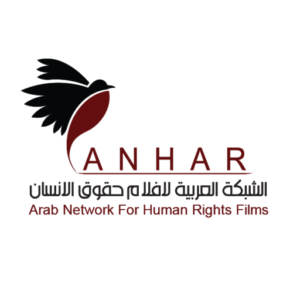The Arab Network for Human Rights Films (ANHAR) – the political and economic developments in the region
The region continues to witness wars and atrocities, armed conflicts, and acute crises, keeping it among the most turbulent areas in the world, with the danger reaching alarming levels for human life as well as its political and economic aspects. This confirms that the region is undergoing historical transformations, yet the contours and trajectory remain unclear.
Members of the Anhar Network in the region face these turbulent conditions and the consequences of these wars, making it extremely challenging to organize their activities and festivals, especially given the difficulty in securing funding amid wars that threaten human lives, prioritizing humanitarian relief.
This threat also affects the lives of the members themselves, making their presence in conflict-ridden countries extremely difficult. For example, the Red Carpet Festival team has not returned to Gaza since leaving at the start of the war. Members of the network in Sudan remain outside the country, with the war in Sudan entering its second year and no signs of a resolution in sight.
The Karama-Beirut team faces immense difficulty in securing funding for the Human Rights Festival amidst economic and political deterioration and real threats of a possible war with Israel. Additionally, there is a growing trend of political repression and crackdown on freedom of expression and civil activism in most countries in the region, threatening any positive change toward expanding democracy or activities promoting human rights and independent legal thinking.
The war waged by the occupying state of Israel on the Gaza Strip has surpassed six months, and its brutality continues to escalate with indiscriminate shelling of all areas of the Strip and preventing humanitarian aid from reaching its inhabitants. All international efforts calling for a permanent ceasefire and an end to the war have failed.
This war reveals an unprecedented situation regarding human rights violations, reaching the point of blatant disregard and violation of international humanitarian laws and conventions. Efforts in the United Nations Human Rights Council are increasing to pass a resolution calling for Israel to be held accountable for “war crimes” and “crimes against humanity”.
The international criminal justice system has failed to address the crimes of the occupation, and campaigns to restrict freedom of expression regarding Palestine have intensified in Europe and the United States in ways not seen before. Against the backdrop of this war, the Israeli-Lebanese border has witnessed exchanges of fire between the Israeli army on one side and Hezbollah and Palestinian factions on the other, leading to casualties on both sides of the border. This adds an additional factor to the instability and insecurity in Lebanon, alongside other crises it faces, with no radical solutions in sight in the near future.
Members of the network, whether in war zones or outside them, strive to maintain their activities and not succumb to the turbulent conditions of the region. The urgent need to address these blatant violations of human rights calls for increased cooperation and mutual support among network members, and a concerted effort to explore new ways to support each other to express the historical turning point that is sweeping through the countries of the network and the globe.






